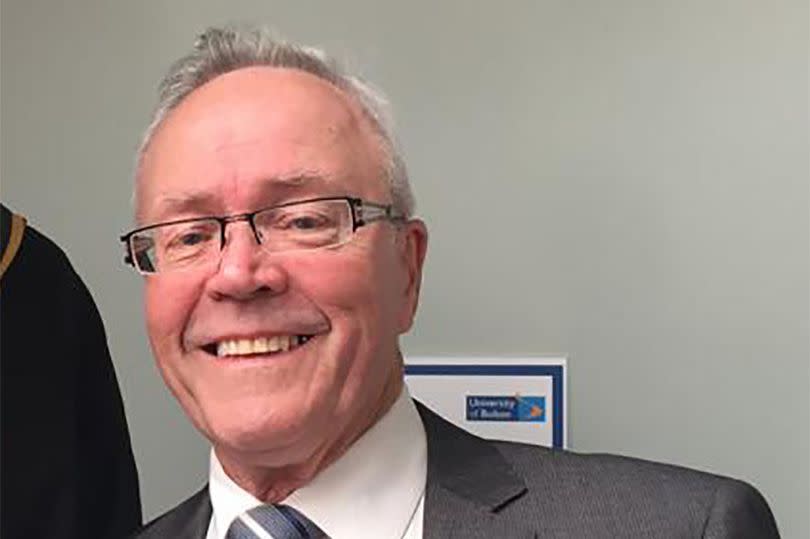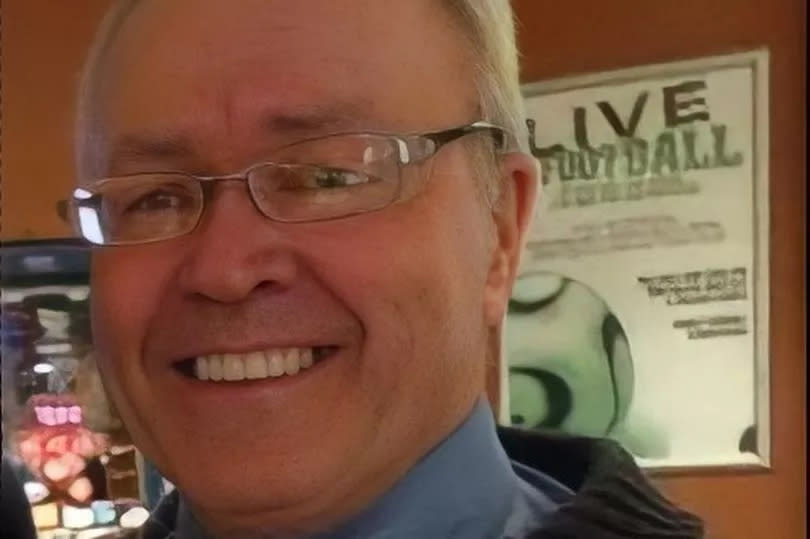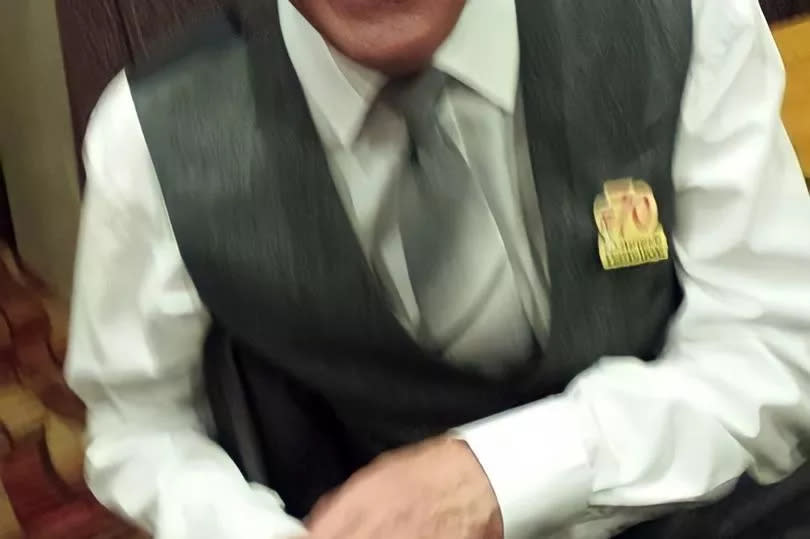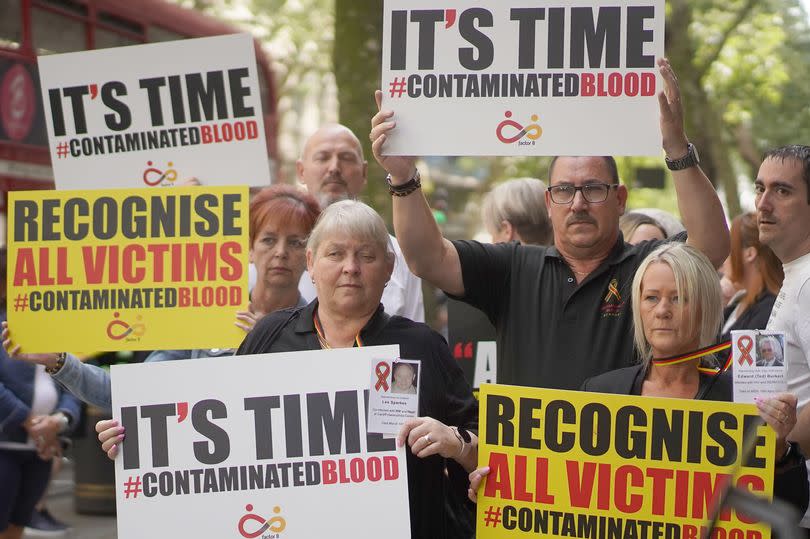'My dad spent decades fighting but died before he could get justice - that can't happen to anyone else'

“There was a lot of stigma, he didn’t really know much about what he had been infected with. We weren’t allowed anywhere near his plates after tea, he used to wash himself with bleach – the stench is a prominent childhood memory for me.
“He wasn’t really affectionate with us because of how terrified he was of passing it to us. He was an amazing father, but we missed out on all those hugs and kisses because he was trying to protect us.”
Gareth Mossman spent his childhood quite literally living with the reality of the biggest treatment disaster the NHS has ever seen. Not only was his father one of more than 30,000 people were infected with deadly viruses while they were receiving NHS care between the 1970s and 1990s, one room of their Wythenshawe council house was filled with documents which would later become evidence for an explosive inquiry.
His dad, Peter, was infected with hepatitis C in his 40s after being given a contaminated blood product which was supposed to help treat his haemophilia. It began a fight for justice that would consume the rest of Peter and his family’s lives.
READ MORE: Children used as 'objects for research' - the 'chilling' findings of the Infected Blood Inquiry
The Infected Blood Inquiry has concluded today (May 20), and found that the scandal which left 3,000 dead was "not an accident" and largely "could have been avoided", with evidence that Whitehall officials destroyed documents. The inquiry chairman, Sir Brian Langstaff, described the disaster as a “calamity”, as the probe revealed that patients were knowingly exposed to unacceptable risks of infection.
The report lists a “catalogue of failures” which had “catastrophic” consequences. Sir Brian said “the scale of what happened is horrifying”, amid a "chilling" and "pervasive" cover-up at the highest levels of government.
Dad and grandad Peter Mossman was one of the first people to set up a campaign after being infected in the early 1980s - called the Manor House Group, in his bid for those responsible to take accountability for the scandal.
After having to leave his job as a coach driver, he devoted much of the remaining 35 years of his life campaigning for a public inquiry, which began in 2017. He sadly died on December 17 2021, aged 78, before he could see the inquiry conclude.

His son Gareth told the Manchester Evening News today: “I was born in 1984 and my dad was working on this for as long as I can remember.
“I spent my childhood growing up with this and literally having it in the house. We were in a three-bed council house, and the box room was filled with all these documents which have now been provided as evidence – some of them have been provided by my dad.
“This has been going on for 40 years. People thought the treatment was helping them, but it was actually killing them. Young children lost their lives, they didn’t even get to have a childhood.
“There’s been so many people in power covering this up. Why can’t people just own up to mistakes?"

This morning, Gareth found himself restless as he waited to find out the result of what he, his father, and so many families like his have campaigned on for decades. He said: “There’s so many mixed emotions, I couldn’t sleep this morning in anticipation, but my first emotion is pride for what my dad did. He was a massive campaigner in this and fought so long for this outcome.
“We have to be pleased with the outcome – but at the same time, there’s a lot of anger. To hear that all of this wasn’t an accident and that the government and doctors at the time knowingly infected people.
“My dad often said that if he had been told of any risks, he wouldn’t have had the treatment and his life would have been very different. These documents that have been provided as evidence are not new, my dad has these documents decades ago but kept getting pushed back and back.
“And there’s sadness that he’s not here to see it. He always wanted justice – he always knew it wasn’t right and that people were fully aware of what they were doing.
“He would be very angry that the acknowledgement is only coming now and that has all only been made public now.”

In the House of Commons this evening, Rishi Sunak apologised for the infection of around 30,000 people with with HIV and hepatitis C, and the failure to address the problem. He accepted the findings of Sir Brian Langstaff's inquiry report: "Was there a cover-up? Let me directly quote him - there has been".
But these families cannot be forced to wait again as, so far, no compensation has ever been paid to victims of the contaminated blood scandal in the UK. They want to know what will happen in practice following the horrifying findings of the inquiry.
“What is the government going to do about this? We’ve been waiting so long – my dad and so many people like him were let down for so many years – even though this report has come out now, will it make any difference?” asks Gareth.
“The government needs to act fast in its response. We’re getting a response from the Prime Minister, I don’t want that to be lip service or half-hearted. There has to be meaning behind the apology.
“Rishi Sunak didn’t start this – but he is the Prime Minister now. We want to hear what the government is apologising for, is it going to own up for previous governments and their massive failings.
“This is on both sides, we’ve had Labour and Conservative governments since these treatments were manufactured and given out, and there have been successive governments brushing it under the carpet.
“It’s not about the money, it never was for my dad. But compensation is a form of acknowledgement, and it needs to come fast. If there’s delay, more people will lose their lives before they get any recognition of what’s happened to them and their families.”

Recognition is decades overdue, say the victims of this scandal, and once again time is of the essence to make sure no more die before they receive acknowledgement.
“You look at the pictures from outside Westminster and there’s so many people who look unwell. Those are the people who are going to die before they get any compensation,” adds Gareth.
“My dad used to say ‘they’re waiting for us all to die’ before this would be exposed. But he still had a bit of hope that he wouldn’t pass before seeing this day.
“The government knew this was coming and should have been getting something in place. They must act right away.
“I grew up with him saying ‘I have to get justice, I have to fight’. He died without being able to see any justice, he doesn’t even recall the inquiry starting because his cognitive ability had declined by then. But there are people who are still alive and I hope they’ll be able to see a little bit of happiness before they die because of today.”

 Yahoo News
Yahoo News 
